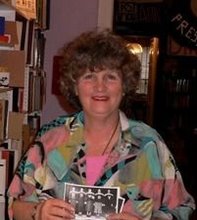Before I pick up other threads--the remains of the prison colony on Sarah Island, the chronicling of my own Jewish despair and anger at the state of the world, the travails of an aging fem queer self--I return to some images of my life here, at 4 Fitzgibbon Avenue in West Brunswick. I read myself to bed these nights with Dicken's "Barnaby Rudge," a novel of his later years, I thought only to discover this not so, published as it was in 1841--it is I who desire to see how an imagination ages and find I love the man more and more as I age. I am already ten years older then Dickens was when he collapsed and died after a dinner in his family home--but how vacant those years seem for me in some creative sense as I read of Grip's tenacious hold on Barnaby's playful self, of the warmth of the Maypole Inn's common room, of Dicken's vast view of London both alive in his own time and the past dark streets of a city growing into its self a hundred years earlier. Never has a fire shown so bright on the page, the wind howled so forlornly outside the frosted windows, yes, the glow of sentiment and moral vision, all the holy fools of Shakespeare are here, and hollow worlds of human vanity and vital richness es of earthly beauty--even more special as I hold the compact Oxford Illustrated Dickens edition in my hands, late into the night, with its yellow illustrated cover, I am close to Naomi who back in New York City, my other London, took this book off the top shelf of the book case close to the door, plucked it from the row of the other Dickens in this series and put it into my hands. A plump, solid moment, these bound words from her hands into mine. Now that winter is approaching here, back in Melbourne, I sometimes light the fire in our small hearth in the study, Cello stretches out in front of the warming blaze and I read my Dickens with all the howls of weather and the human heart in this little space between the fire and my chair. I am so grateful to the imagination of this gifted hard working man, to all who have put words into my hands, living things that dance with the glory of our so vast, so frail human possibilities. My comforts in this world of our horrors--the guns that spit death, the bombs that birth hundreds of other killing bits, the marches and the flags and uniforms of humanity lost.
Last night such pleasures. Daniel and Joel, two young friends, joined us for dinner. Daniel and I had been working for some hours on our book project, "Archiving Pleasures: An International History of the Founding and the Future of Lesbian and Gay Archives," in this same study with another fire warming the room. Then as night fell, La Professora returned from work and Joel was called from his academic toil and we set out for Moony Ponds, a neighborhood, as we would say in New York, made famous by Dame Edith, the created "woman" of Barry Humphrey as her home town and the one from which Humphrey had to flee in real life. Four queers in Fifi, our old Honda, tootling down Dawson Street in search of somewhere to eat on this the evening of The Queens Birthday, a national holiday here. In five minutes, Dawson street turns into Puckle street and we are in Moony Ponds--and Dickens is dancing in my head. We find the only restaurant still open, a small Vietnamese family place and talk and eat and talk for a few hours-- in a small place in a small suburp--and then back to Brunswick and Lygon street to a still open Italian pastry shop where La Professora tells us her plans to bake a trifle for Joel to celebrate his Ph.D. Good talk, good friends, all knowing uncertainties, but laughing and kind with Joel even given in to my request for a bit of French, his loved language--by reciting a poem by Sartre. We pile back into Fifi and head back home. Later in the night, as I lay with Dickens resting on my belly--I remember Daniel's words almost whispered into my ear ,as we sat looking at the photographs he had taken of New York just two weeks before when he visited for the first time--he had gone to my old home, 215 on 92nd and taken images for me, Hector, Maria, the postwoman, all who had remembered and as I sat in the darkness with him with only the light from the computer screen in front of us and the dying light of the fire behind us, he whispered, don't worry, Joanie, we will get back there. How like Barnaby and his pal, Grip, a smart bird who never left the side of the "fantastic, half-crazed youth," as Dickens described him. Kindness and promises not to be kept but to be commemorated.
Tuesday, June 10, 2008
Subscribe to:
Post Comments (Atom)

No comments:
Post a Comment